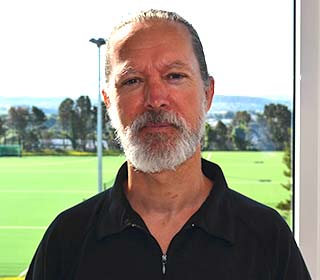Interested in finding about more about our Social Policy Master's? Contact Jon Ord at jord@marjon.ac.uk
MA Social Policy
Analyse social policy as it applies to your profession, or area of interest, considering its broader economic, social, political, environmental and political contexts. Make a difference - learn how to put theory into practice.

Entry requirements
A relevant degree such as one from Social Sciences, Arts, Humanities or the human service professions
Applicants with other degrees are assessed on their social sciences knowledge at interview, and an appropriate reading list will be devised for them
We accept applications from experienced practitioners with non-traditional qualifications
APEL regulations will apply
DBS clearance may be required depending on module selection
UCAS code Apply to Marjon
UCAS institution code P63
Duration One year full-time or two years part-time
Any questions about postgraduate study at Marjon?
Contact Rachel Bailey-Lewis, our Student Recruitment Officer (Postgraduate).
Course Summary
Contribute to socially just and sustainable academic research with impact in practice. The MA Social Policy will be of particular interest to you if you are:
- An experienced practitioner looking for advanced Continuous Professional Development opportunities.
- An international student wanting to study and practice in the UK.
- An undergraduate student looking to move directly onto postgraduate education incorporating work based experiences and strengthening your employability prospects.
- A practitioner who wants challenge and interrogate current policy.
This challenging programme is about making a difference with opportunities to theorise social policy in practice.
The MA Social Policy will provide opportunities to actively engage in professional networks across a range of vibrant partnerships as well as contribute to socially just and sustainable academic research with impact in practice.
A key feature of the programme is the emphasis on both breadth and depth of understanding of social policy analysis in its broader economic, social, environmental and political contexts.

Why this course at Marjon?
Explore policy from both British and International perspectives.
Develop opportunities for global, employer and digital engagement through which to create a greater capacity for social policy practice and knowledge exchange
Develop confidence, capabilities and creativity to flourish in the worlds of study and employment
Modules for this course
1st Year
Politics and social policy analysis
Analysing social policy: discourses of social control, agency & well-being
International social policy analysis
Research in social policy contexts
Dissertation
Current students say...
Rosie Daniel
“I chose to study social policy at Marjon, firstly because I rate the lecturers very highly after studying for my undergraduate degree here. Their teaching style is excellent and enables me to maximise my learning. Secondly, it is a really interesting subject and I knew I would benefit from the small class size. This gives more opportunities for interaction and discussion in our seassions.”
Simon Kelly
"The course is engaging and gives you the freedom to explore policy areas that you are passionate about. The material and the exceptional support and knowledge of the lecturers has helped me develop skills of researching, interpreting and evaluating data. I'm developing a balance of critical thinking and creativity, whilst making a connection between policy and the real world. I would highly recommend this course to anyone considering it."
This course is perfect if you’re curious about
How the concept of quality is constructed in a range of policy areas?
Gaining a better understating of the welfare system from universal credit to the bedroom tax'
How has the drive for Academies re-shaped education provision?
Do inclusion policies maintain structural inequality or promote equality?
How can sustainability be developed and the climate crisis be averted?
Understanding the barriers to social democratic / progressive policies in the UK and beyond
“ We work closely with staff and students from Marjon, and the collaboration has been very effective. Marjon has joined the sector in finding ways of delivering the recommendations of Plymouth’s ‘Fairness Commission Report’ and is partnered with us in defining and measuring the sector in a ‘State of the Sector’ report, and is now actively engaged in setting up a more robust, sustainable and self-owned infrastructure organisation for the voluntary and community sector in the city.”
See where our graduates are now
Charmaine Pike
“Our lecturers were fabulous, their passion and knowledge is inspiring. I could not have completed this course without their time, patience and support throughout. The opportunity to study, research and analyse policy provided me with a wide range of insights. I would recommend this programme wholeheartedly. I am confident that once you begin you will not look back.”
Marie Bradwell
“The lecturers are knowledgeable, understanding of our individual needs as students. The taught sessions were insightful and engaging, led by lecturers but enhanced through debates. We all came from different background disciplines and this created an interesting and dynamic environment. The assessments were challenging, motivating and most of all enjoyable. On a personal level this course has supported me in finding self-confidence and in doing so has given me a voice."
Marie is now a PhD student at Marjon.
Agnes Cioffi
“The course was engaging and helped me make links between theory and practice. All the lecturers are passionate and supportive. I have made long-lasting friendships with fellow students, sharing our experiences enhanced our learning and all are passionate about analysing and challenging policies in their respective fields. Through studying the course, new opportunities have arisen which have enabled me to f lourish academically, and I have been able to enhance my career as a result.”
Agnes is now a University Lecturer.
What might you become?
MA Social Policy graduates could expect to work in a wide range of posts across the statutory or the third-sector. These could include roles in central and local government departments, community bodies, charities, housing and health organisations; or research consultancies, advocacy and campaigning bodies.
Students gain a wide range of knowledge and develop transferable skills throughout the programme, including sophisticated skills in research, communication, and analysis. Our current students work alongside as well as study in a range of fields in health, housing, social services and education.

How you’ll be taught and assessed?
How will you be taught?
You're taught in small group tutorials and seminars once a week, a twilight session, supported by directed group activity, online activities, and reading. In year 2, you are supported through your independent projects through individual and group tutorials.
Teaching is delivered both on campus and online, and campus attendance is recommended to get the most out of your degree.
How will you be assessed?
Via essays, presentations and visual media such as posters and websites.

Jon worked for 20 years as a youth work practitioner in a variety of settings and brings that knowledge and commitment to youth work to his teaching and research. He is particularly interested in the relationship between theory and practice of youth work, the impact of policy on practice, the management of youth and community work and outdoor education. Jon also leads a major research project into the value and impact of youth work on the lives of young people in Europe.
Fees and funding
Fees UK students: £8,500 per annum
Fees for International students: £14,600 per annum
This fee covers your tuition and access to course-specific equipment and facilities, as well associated services including access to the library, study skills support, IT support, student support and wellbeing services and membership of the Student Union. There may be additional costs by course.
Funding available for this course
Our Student Funding Advisors offer confidential and impartial advice about your funding options.
Learn moreLecturers
More information
If you want to undertake postgraduate study and are wondering how to finance this you can now access a loan for up to £10,000 to support whether you want to study part time or full time. More details can be found here.
What our partners have to say:
"Citizens Advice Plymouth is a member of a networked group of independent charities that work across the England, Scotland and Wales. There is an identified gap within research and we are pleased to join with Plymouth Marjon University Masters programme. We feel that with this partnership we would really be able demonstrate the value that advice has for the city and the impact on people’s lives once their issues have been resolved. This is a really exciting opportunity and we welcome the opportunity to be involved."
Emma Handley, Chief Executive Officer, Plymouth Citizens Advice Bureau
"A sound understanding of policy processes and the political, social and scientific discourses that inform policy making will equip the graduates of this course with some key skills. Social Policy is one of the major determinants of health at a population level and many Public Health practitioners study social policy before going on to complete specialist Public Health training."
David Schwartz, Office of the Director of Public Health, Plymouth.







